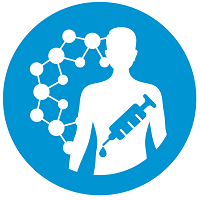Preclinical, Clinical and Translational Sciences
Translational PKPD Considerations for T-Cell Bispecifics: A Real-World Case Study
Monday, October 21, 2024
3:45 PM - 4:00 PM MT
Location: 251 ABC

Gautham Gampa, Ph.D.
Principal Scientist
Genentech
South San Francisco, California
Rapid Fire Speaker(s)
T-cell bispecific (TCB) antibodies bind target antigens on tumor cells and CD3 on T-cells to facilitate the formation of immunological synapse, thereby eliciting activation of T-cells as well as secretion of inflammatory cytokines and cytolytic molecules to induce tumor cell killing. Given their potent mechanism-of-action, multiple factors need careful consideration during development including PKPD properties and assessment of therapeutic index. Moreover, appropriate preclinical-to-clinical translation methodology, including selection of First-in-Human (FiH) dose, is important to support key developmental decisions and inform clinical study design for TCBs. Herein, the key considerations for preclinical-to-clinical translation of TCBs will be discussed using a specific case study of STEAP1 targeting TCB developed for a solid tumor indication. The preclinical PK and anti-tumor efficacy results as well as proposed FiH dose selection approach will be presented. Additionally, the PKPD modeling strategy utilized to integrate the comprehensive preclinical data and support clinical translation will be presented.
Learning Objectives:
- Upon completion, participants will be able to describe translational pharmacology aspects to be considered in the development of T-cell bispecific antibodies
- Upon completion, participants will be able to improve understanding of approaches used for PK-PD characterization of T-cell engaging bispecific molecules by learning from a case study
- Upon completion, participants will be able to demonstrate appreciation of clinical starting dose selection as well as translational modeling and simulation strategies used for T-cell bispecifics


